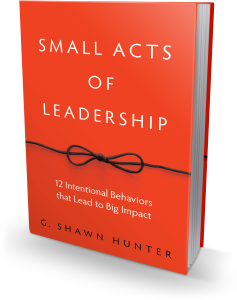What if We Are Actually Hard-Wired for Kindness and Compassion?
Remember the book, “Lord of the Flies”? You probably read it – or at least heard about it – in high school. The story plays to our darkest fears of human nature. “Lord of the Flies” a fictional story based on the idea of “veneer theory.”
The idea behind veneer theory is that human civilization is like a thin veneer or layer on top of a more primal and savage nature. According to this theory, human beings have an inherent capacity for violence and aggression, and it is only through the rules and norms of civilization that we are able to suppress these tendencies and create a peaceful society.
Published in 1954, “Lord of the Flies” sold slowly at first, until taking off and eventually selling tens of millions of copies. It won a Nobel Prize in 1983. Translated into over 30 languages, the book tells the story of a group of boys who are stranded on a deserted island and the ways in which their society devolves into chaos and violence. “Lord of the Flies” is known for its exploration of human nature and the darker side of humanity.
It was written by William Golding, an Englishman who grew up in a middle-class home and then served in the Royal Navy in World War II, where he witnessed the horrors of war. These experiences had a profound impact on his writing. His works often explored the darker aspects of human nature. Or as Golding put it, ‘Man produces evil as a bee produces honey.’
Yeah, well, Golding was also a reclusive, brooding alcoholic, who once divided his students into opposing gangs and encouraged them to fight each other.
While his fictional narrative certainly grabs your attention, just like a good Halloween movie, the premise doesn’t hold up. It’s just an alarming and exciting story that makes you stop and pay attention. In the British news, that’s called a “marmalade dropper.” As in, “That crazy ass story about Will Smith slapping Chris Rock at the Oscars made me drop my marmalade!”
We’re attracted to conflict, but it’s more unusual than we realize because the media knows we’re triggered by negativity, and feeds the beast within. And now that AI and user algorithms have taken over your feed, they know EXACTLY how to pull your chain, because every click and scroll surrenders that much more control.
What’s that old parable about the internal battle between the good wolf and the bad wolf? The good wolf represents bravery, generosity, and love. The bad wolf represents anger, hatred, and greed. The child asks his wise grandfather, “Which one wins?” and the grandfather replies, “The one you feed.”
Remember, there’s no such thing as a small act of kindness. Every act creates a ripple with no logical end. – Scott Adams
Every day we are actively creating the world together with the stories we tell ourselves and each other. We believe what we choose to see in the world. I choose to see that people are innately good, prone to assuming best intentions, and quick to lend aid and help in times of calamity and adversity. History is full of stories of disaster altruism:
- On September 11, 2001 immediately after the plane attacks into the burning Twin Towers, thousands of people were descending the emergency exit stairs, knowing that the building was on fire. They cleared the way for firefighters to ascend, and helped each other in an orderly and polite way. One survivor reported, “People would actually say, ‘No, no, you first. I couldn’t believe it, that at this point people would actually say, ‘No, no take my place.’
- During World War II, people throughout Europe risked their lives to protect and hide Jewish refugees from Nazi persecution. These individuals demonstrated incredible courage and selflessness, often at great personal risk.
- In the aftermath of Hurricane Katrina in 2005, many people from across the United States traveled to New Orleans to provide aid and assistance to those affected by the storm. This included volunteers from all walks of life, who donated their time, money, and resources to help others in need.
- In 2011, following the devastating earthquake and tsunami in Japan, many Japanese citizens organized to provide aid and assistance to those affected by the disaster. This included volunteers who traveled to affected areas to provide medical care and supplies, as well as citizens who opened up their homes to those who had been displaced.
Ok, yes if you look for it you can find hoarding, pillaging and “shortage psychology” too. During the Great Depression in the 1930s, competition for jobs and resources was fierce, with many people struggling to make ends meet. This led to a rise in crime and antisocial behavior, as people competed for limited resources and opportunities.
More recently, during the COVID-19 pandemic, competition for resources such as medical supplies and personal protective equipment (PPE) has been a significant issue. Remember the run on toilet paper? The world shut down on about March 13, 2020 and by March 23, 70% of grocery retailers were out of toilet paper.
Crises can bring out both the best and the worst in people, depending on a wide range of factors, including cultural norms, resource availability, and the nature of the crisis itself. Yet, what if we are actually hard-wired for kindness and compassion?
What if a belief in our innate generosity is exactly the kind of idea that has the power to change our communities, our society, and our nations, for the better?
________________________________________________

My book Small Acts of Leadership, is a Washington Post bestseller! You can grab a copy here. And if you want to learn to apply some of these ideas and be an effective coach for your team, we wrote a course on that too. It’s called Coaching for Managers available over at UDEMY for Business.



